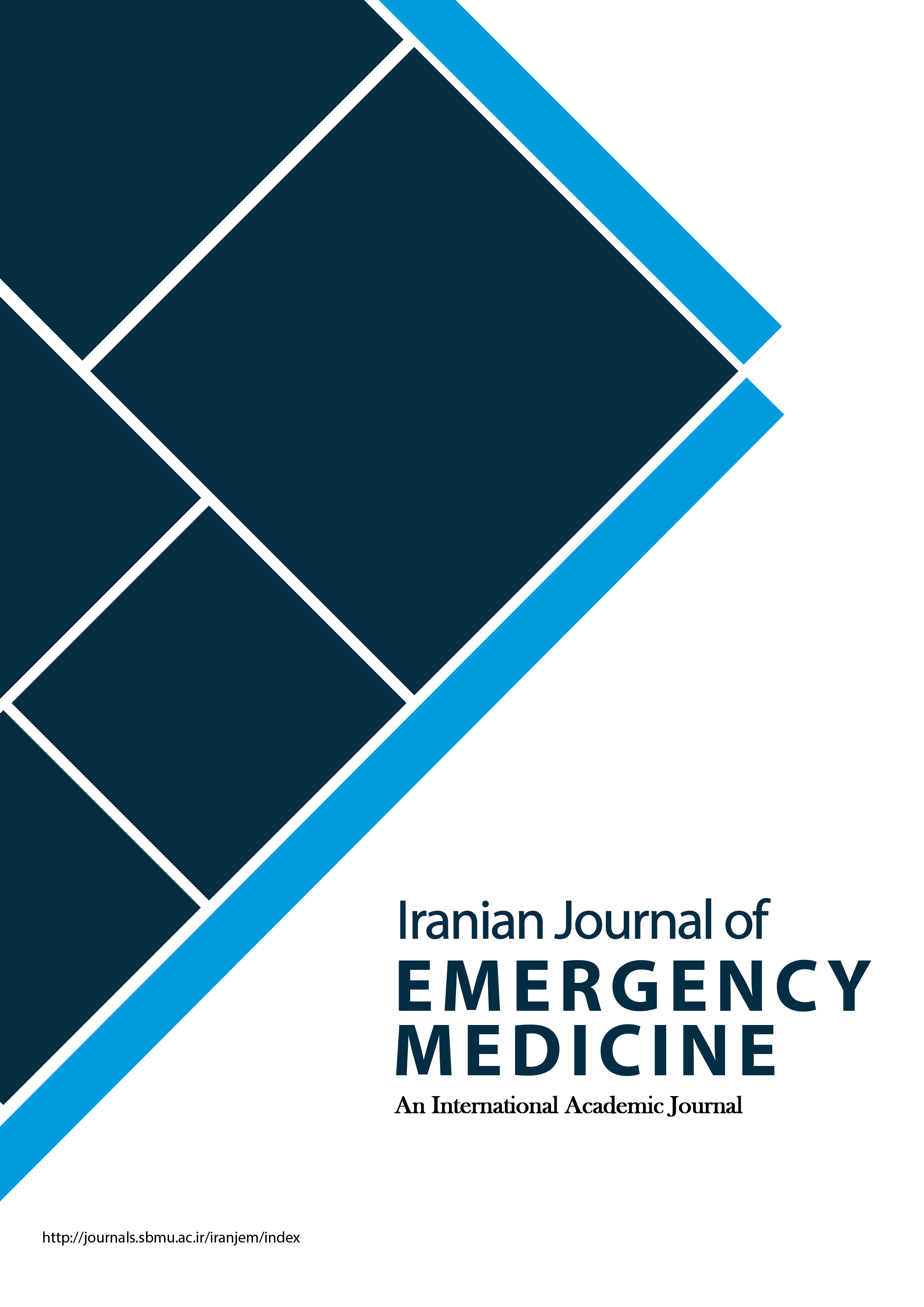How to Maintain our Health as Healthcare Staff of the Emergency Department? a Review Article
Iranian Journal of Emergency Medicine,
Vol. 5 No. 1 (2018),
8 February 2018
,
Page e19
https://doi.org/10.22037/ijem.v5i0.21833
Abstract
Maintaining health is a requirement for having a satisfying job and being efficient. 24-hour activity and working every day of the week leads physicians who work in emergency departments to facing the effects of imbalance in physiological status of the body due to changes in working shifts and working hours. It has been proved that working in shifts leads to decreased quality of sleep, fatigue, mental state disorders, dysfunction in social and family relationships, and problems in providing the mental needs of individuals. With increase in mental and physical tiredness, physicians gradually develop feelings of depersonalization, frustration and emptiness. They develop a negative view towards the patients and their treatment and if the fatigue continues the patient-physician relationship will suffer. The basis of the solution in cases of fatigue is providing a balance in life and looking after oneself and personal health. To improve sanity and mental-physical health in a healthcare system, an array of people are involved, each of whom plays an important role in this major issue.
- Emergency Service, Hospital
- Burnout, Professional
- Health Personnel
How to Cite
References
Wallace JE, Lemaire JB, Ghali WA. Physician wellness: a missing quality indicator. Lancet (London, England). 2009;374(9702):1714-21.
West CP, Huschka MM, Novotny PJ, Sloan JA, Kolars JC, Habermann TM, et al. Association of perceived medical errors with resident distress and empathy: a prospective longitudinal study. Jama. 2006;296(9):1071-8.
Aghili SM, Shahjooie F, Moghadam MA, Khazaeipour Z, Vaseie M, Kia M. Relationship between the degree of dehydration in emergency medicine residents at the beginning and end of clinical shifts with cognitive performance, mood, and anxiety at emam khomeini hospital (june 2016 until the end of the same year). Acta Medica Mediterranea. 2018;34:591-6.
Edwards FJ. Good Interdepartmental Relationships: The Foundations of a Solid Emergency Department. Advanced Journal of Emergency Medicine. 2018;2(2):e14.
Smith-Coggins R, Broderick KB, Marco CA. Night shifts in emergency medicine: the american board of emergency medicine longitudinal study of emergency physicians. The Journal of emergency medicine. 2014;47(3):372-8.
Jalili M. Emergency Medicine as an Academic Discipline: Giants strides along an Endless Path. Advanced Journal of Emergency Medicine. 2017;1(1):e1.
Mirbaha S, Forouzanfar M, Mohebi M, Kariman H. The Cost of Leaving the Emergency Department without Notice; a Cross-sectional Study. Advanced Journal of Emergency Medicine. 2018;2(1):E6.
Webster F, Rice K, Dainty KN, Zwarenstein M, Durant S, Kuper A. Failure to cope: the hidden curriculum of emergency department wait times and the implications for clinical training. Academic medicine : journal of the Association of American Medical Colleges. 2015;90(1):56-62.
Oreskovich MR, Kaups KL, Balch CM, Hanks JB, Satele D, Sloan J, et al. Prevalence of alcohol use disorders among American surgeons. Archives of surgery (Chicago, Ill : 1960). 2012;147(2):168-74.
Walls R, Hockberger R, Gausche-Hill M. Rosen's Emergency Medicine: Concepts and Clinical Practice. 9th Edition ed: Elsevier; 2018. p. 145-8.
Linzer M, Levine R, Meltzer D, Poplau S, Warde C, West CP. 10 Bold Steps to Prevent Burnout in General Internal Medicine. Journal of General Internal Medicine. 2014;29(1):18-20.
Tabrizi S, Nejati A, Nedjat S, Aghili SM. Specialist Physicians’ Attitude towards Emergency Medicine; a Semi-Structured Qualitative Study. Emergency. 2018;6(1):e6.
- Abstract Viewed: 291 times
- PDF (فارسی) Downloaded: 130 times
- HTML (فارسی) Downloaded: 64 times



